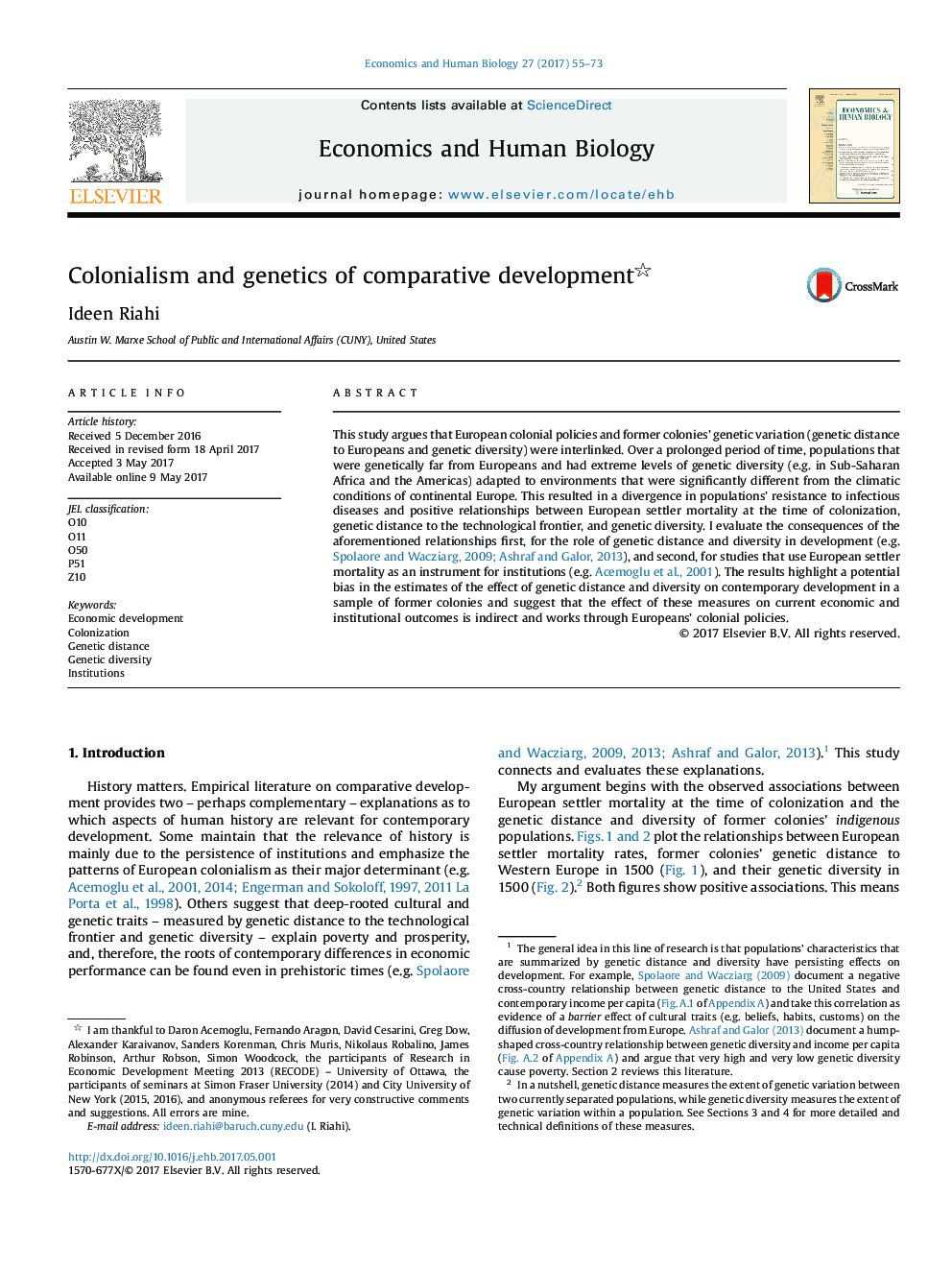| Article ID | Journal | Published Year | Pages | File Type |
|---|---|---|---|---|
| 5056765 | Economics & Human Biology | 2017 | 19 Pages |
â¢This paper studies the association between European colonial policies and former colonies' genetic variation.â¢The historical differences in the disease environments resulted in a divergence in the immunity-related genes of separated populations.â¢There is an upward bias in estimates of the effect of genetic distance to the technological frontier and genetic diversity on income per capita.â¢The effect of aggregate genetic traits (distance and diversity) on development works through Europeans' colonial policies.
This study argues that European colonial policies and former colonies' genetic variation (genetic distance to Europeans and genetic diversity) were interlinked. Over a prolonged period of time, populations that were genetically far from Europeans and had extreme levels of genetic diversity (e.g. in Sub-Saharan Africa and the Americas) adapted to environments that were significantly different from the climatic conditions of continental Europe. This resulted in a divergence in populations' resistance to infectious diseases and positive relationships between European settler mortality at the time of colonization, genetic distance to the technological frontier, and genetic diversity. I evaluate the consequences of the aforementioned relationships first, for the role of genetic distance and diversity in development (e.g. Spolaore and Wacziarg, 2009; Ashraf and Galor, 2013), and second, for studies that use European settler mortality as an instrument for institutions (e.g. Acemoglu et al., 2001). The results highlight a potential bias in the estimates of the effect of genetic distance and diversity on contemporary development in a sample of former colonies and suggest that the effect of these measures on current economic and institutional outcomes is indirect and works through Europeans' colonial policies.
